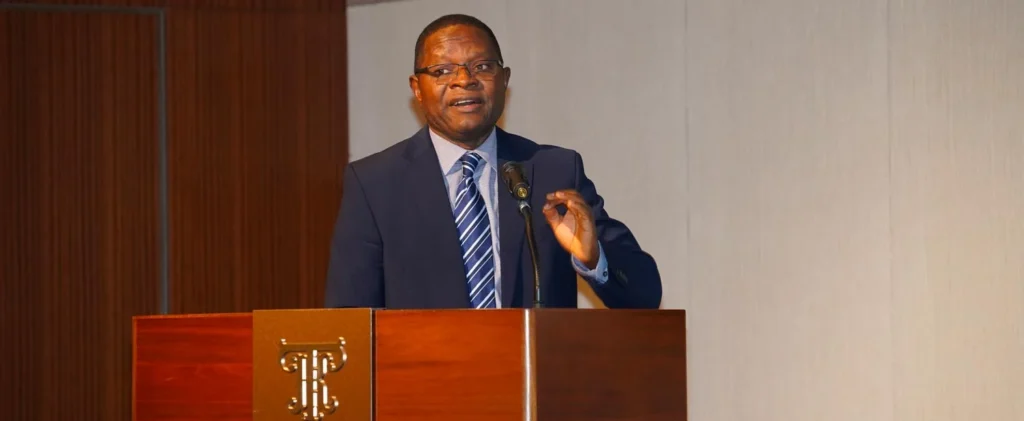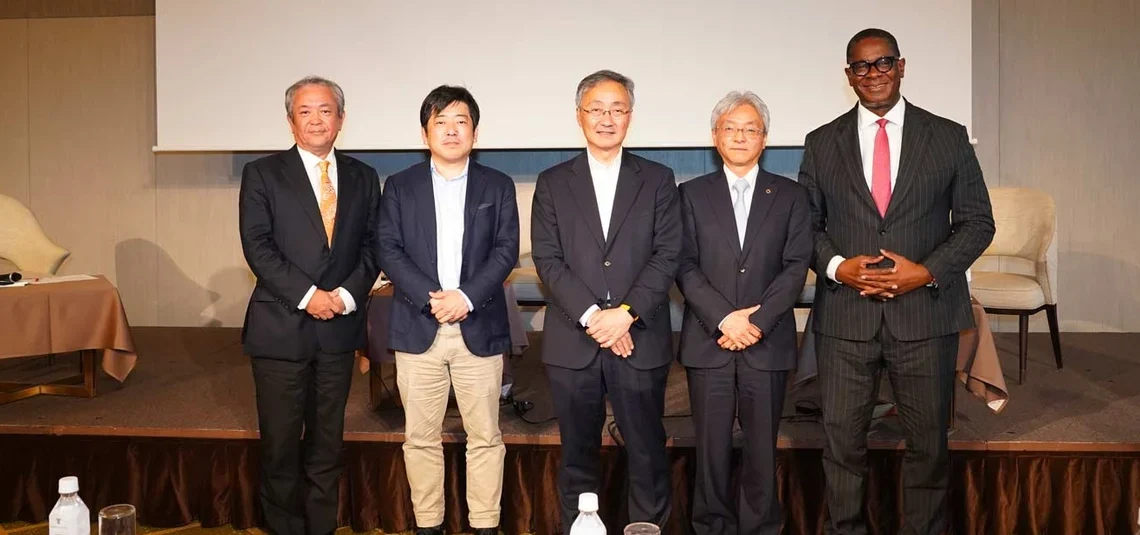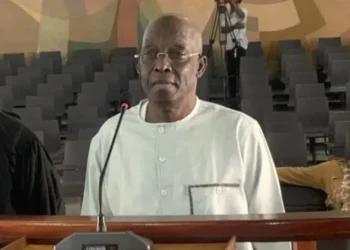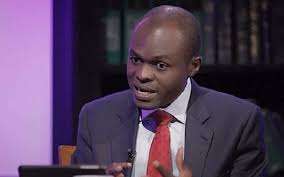Africa presents a compelling investment destination for Japanese firms, with high growth potential and the African Development Bank’s strong support to manage risks, African Development Bank Group leaders stressed at the Japan-Africa Business Forum in Tokyo.
“Africa has huge private sector opportunities. The continent offers some of the highest returns globally,” said Prof. Kevin Chika Urama, Bank Group Chief Economist and Vice President, in a presentation highlighting Africa’s abundant renewable energy potential, and the need for strategic investments in green minerals and value addition. “Smart investments in Africa are good business — doing well by doing good,” he stressed.
Dr. Kevin Kariuki, Vice President for Power, Energy, Climate and Green Growth, highlighted Japan’s competitive advantage in geothermal technology. “90% of all the turbines in Kenya are from Japan, starting with Mitsubishi,” he noted. Kariuki also positioned Africa as a solution to Europe’s energy challenges, with planned interconnections to export power and hydrogen.
The forum was organised by the African Development Bank and Keizai Doyukai, the Japanese Association of Corporate Executives, with support from Japan’s Ministry of Finance.
Bank leaders underscored the institution’s commitment to making investing in Africa more attractive. “We have facilities within the Bank to try and de-risk these projects,” said Kariuki, citing the Sustainable Energy Fund for Africa’s (SEFA) support for the Kom Ombo and Kairouan solar projects amid escalating costs.
Kazuko Nagura from Japan’s Ministry of Economy, Trade and Industry (METI) announced plans to hold the third Japan-Africa Public-Private Economic Forum later this year. The event will offer Japanese companies an opportunity to travel to Africa to undertake business development and networking. Nagura also made reference to the ministry’s efforts to support Japanese business ventures in Africa such as the AfDX program and Expo 2025 Osaka, Kansai planned for next year.

During a panel discussion on investing in African startups, Vice President for Private Sector, Infrastructure and Industrialisation Solomon Quaynor stressed the potential of the Fourth Industrial Revolution (4IR) to drive productivity improvements and deliver services to the base of the pyramid. “The idea is to use technology to increase profitability through efficiency, so you’re delivering value for which all segments of society are actually paying,” he explained.
The Bank’s Initiatives To Develop Africa’s Human Capital
Quaynor highlighted the Bank’s initiatives to develop Africa’s human capital and startup ecosystem, including partnerships with tech giants, “We have a program with Intel to train 9 million Africans in artificial intelligence and a coding for employment program to upskill up to 50 million youth.” He said the Youth Entrepreneurship Investment Banks (YEIBs) will further support tech-enabled companies and enhance the collaboration with &Capital, a new Africa-focused impact fund endorsed by Keizai Doyukai.
Misako Takahashi, Deputy Director-General of the Middle Eastern and African Affairs Bureau at Japan’s Ministry of Foreign Affairs, highlighted TICAD as a platform for co-creating innovative solutions for growth and to discuss Japan and Africa’s shared future.
Yacine Fal, the Special Representative of the African Development Bank’s President to the Africa Investment Forum, showcased the platform’s role as a premier conduit for investment into Africa’s agriculture, energy, transport, healthcare and ICT sectors, among others. She noted the successful participation of Japanese investors and business leaders including those from Keizai Doyukai at the 2023 Market Days held last November in Marrakech.
Earlier in the day, Keizai Doyukai, and the African Development Bank reaffirmed their commitment to work together to strengthen business ties between Japan and African countries. The two jointly organized the business forum to increase interest in African business and promote a better understanding of the Japanese private sector ahead of TICAD9.
READ ALSO: World Bank: Remittances Slowed in 2023, Expected to Grow Faster in 2024





















